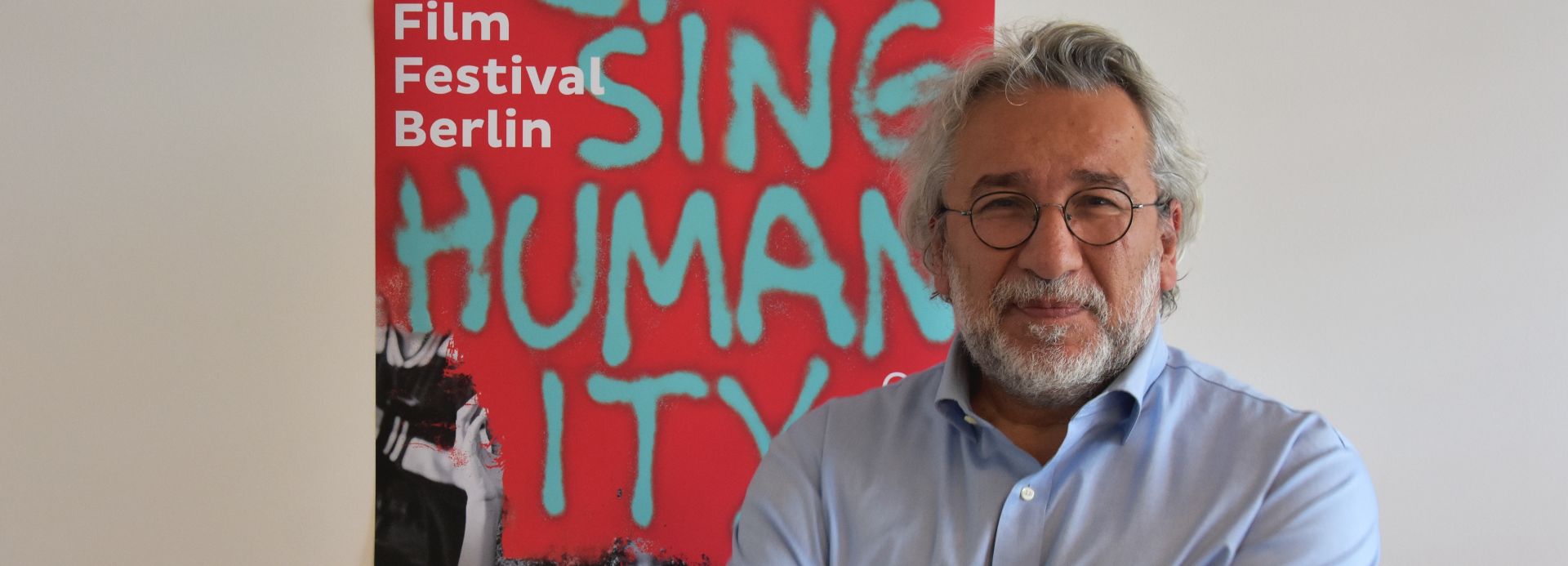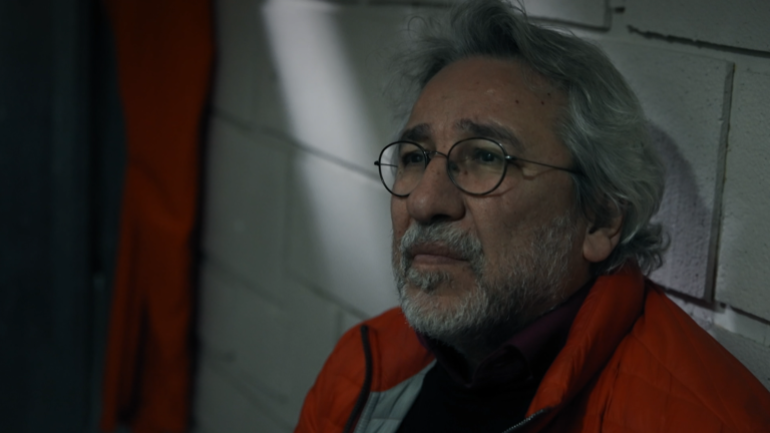
Can Dündar is the Patron of the Human Rights Film Festival 2024 and one of the world’s most prominent Turkish-speaking journalists and film-makers. As editor-in-chief of the newspaper ‘Cumhuriyet’, he reported on arms deliveries made by the Turkish secret service to Syria, for which he was sentenced in absentia to over 27 years in prison on the charge of the betrayal of state secrets. He was also targeted by an assassination attempt. Today he lives and works in exile in Berlin, where he heads the project #ÖZGÜRÜZ (Eng. #WEAREFREE). Dündar has written several books, made a number of highly acclaimed documentaries and received numerous awards, including European Journalist of the Year and the Reporters Without Borders Human Rights Prize.
What has motivated you to accept the role of Patron of the Human Rights Film Festival Berlin 2024?
When I received the invitation, I felt very honoured. This festival brings together human rights and democracy efforts from all over the world, and I am very happy to be a part of it. We are all witnessing the decline of democracy. Even in Germany, the debate is about security versus democracy. If you ask people whether they prefer security or democracy, most of them are ready to sacrifice their democratic rights for security issues, which makes democracy an easy target. Humanity, freedom and democracy are losing ground, so our mission is to reassert their importance and give priority to humanity. The motto of the festival, ‘Choosing Humanity’, is the right emphasis in such times.
With so many crises going on around the world, it is easy to despair. On the other hand, there are so many positive examples of people working for a better future. What role can film play in making a difference?
Cinema is a very important means of reaching people – to explain, to understand, to embrace and to force empathy. A big problem today is othering, which means seeing other people as separate from yourself. But if you know others, if you get in touch with them through films, conferences or festivals, then you can learn to understand them and find solutions. It is not easy, of course, but we need this kind of shared understanding and empathy. Instead of countering hatred with hatred, we need to seek mutual understanding, peace and solidarity. I really believe that everyone can make a difference.
You are also the co-director of the documentary ‘Julian Assange and the Dark Secrets of War’, which will be screened at the festival on October 5. What was your motivation to make this film?
The film is a kind of biography of a whistle-blower, but we wanted to do more than that. The film shows the horrible effects of the war and reveals what governments are hiding from us. The war has not only destroyed civilians, but has also destroyed the attackers, who are suffering from the whole mechanism of war. What has happened is that the government has persecuted whistle-blowers to cover up their misdeeds. Our responsibility is to uncover the truth. That is the power of film, that is the power of documentaries and cinema. And that is why it is so important today to have independent film directors, producers and festivals. Films can help people understand. And they can help spread empathy.

Saturday, 5th October | 7 p.m. | Kino in der KulturBrauerei
With support of Deutsche Welle (DW) and Reporters Without Borders, the HRFFB is showing ‘Guardians of Truth: Julian Assange and the Dark Secrets of War’. Afterwards, directors Can Dündar and Sarah Mabrouk and other guests will be talking about the balancing act beween press freedom and politics, guilt and reconciliation. Dr Melinda Crane will moderate the discussion.

